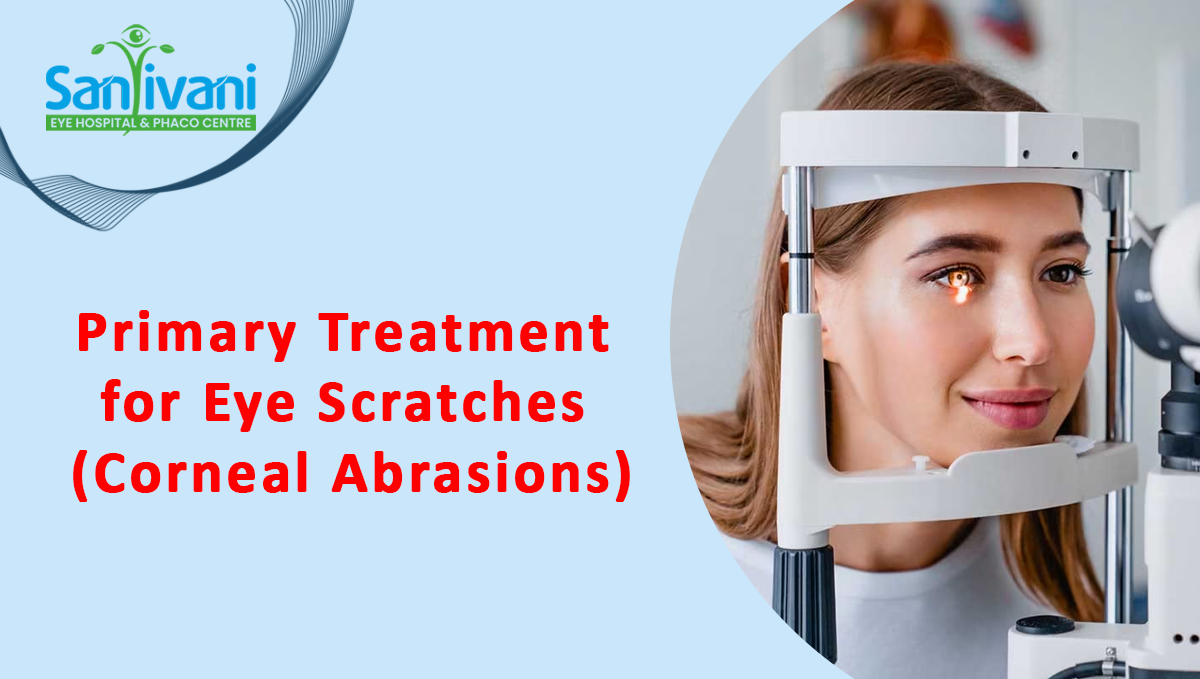
Primary Treatment for Eye Scratches (Corneal Abrasions)
Introduction
Corneal abrasions, also known as eye scratches, are common eye injuries that can cause pain, discomfort, and temporary vision problems. These scratches occur when the surface of the cornea, the clear protective layer covering the front of the eye, is scratched or scraped. In this article, we will discuss the primary treatment options for corneal abrasions to promote healing and relieve symptoms.
1. Rinse with Clean Water:
If you suspect you have a corneal abrasion, the first step is to rinse your eye with clean, lukewarm water. Use a gentle stream of water from a faucet or a clean container to flush out any debris or foreign particles that may be causing irritation or exacerbating the scratch.
2. Blink and Tear Production:
Blinking helps to spread tears across the surface of the cornea, which can help soothe and protect the injured area. Encourage natural tear production by blinking regularly and avoiding activities that may cause excessive eye dryness, such as staring at screens for extended periods without breaks.
3. Avoid Rubbing the Eye:
Resist the urge to rub your eye if you suspect you have a corneal abrasion, as rubbing can further irritate the injury and potentially cause more damage. Instead, keep the eye closed or gently hold it closed with clean hands to prevent further irritation and protect the injured cornea.
4. Use Artificial Tears:
Artificial tears, or lubricating eye drops, can help relieve dryness, discomfort, and irritation associated with corneal abrasions. Use preservative-free artificial tears recommended by your eye care professional and follow the instructions for dosage and frequency of use.
5. Wear an Eye Patch:
In some cases, wearing an eye patch may be recommended to protect the injured eye from further irritation and promote healing. An eye patch can help prevent accidental rubbing or scratching of the cornea and provide a barrier against environmental irritants.
6. Avoid Contact Lenses:
If you wear contact lenses, discontinue their use until the corneal abrasion has healed completely. Contact lenses can further irritate the injured cornea and increase the risk of infection. Instead, wear glasses or follow your eye care professional's recommendations for temporary corrective measures.
7. Seek Medical Evaluation:
If you experience persistent pain, redness, blurred vision, or other concerning symptoms associated with a corneal abrasion, seek prompt medical evaluation from an eye care professional. Your eye doctor can perform a comprehensive eye examination to assess the severity of the injury and recommend appropriate treatment options.
8. Follow Treatment Recommendations:
Follow your eye care professional's recommendations for treating corneal abrasions, which may include prescription eye drops, ointments, or oral pain relievers to alleviate discomfort and promote healing. Attend follow-up appointments as scheduled to monitor progress and ensure proper healing of the injured cornea.
9. Prevent Infection:
To reduce the risk of infection, avoid touching or rubbing your eyes with dirty hands, and refrain from using expired or contaminated eye drops or ointments. Follow good hygiene practices, such as washing your hands frequently with soap and water, and avoid exposing the injured eye to irritants or contaminants.
10. Protect the Eye from Trauma:
Take precautions to protect the injured eye from further trauma or injury during the healing process. Wear protective eyewear when engaging in activities that may pose a risk of eye injury, such as sports or home improvement projects, and avoid activities that could aggravate the injury.
Conclusion
Corneal abrasions can cause discomfort and temporary vision problems, but with proper treatment and care, most scratches heal within a few days to a week. By following these primary treatment guidelines and seeking prompt medical evaluation if needed, you can promote healing, relieve symptoms, and protect the health of your eyes. If you have any concerns or questions about treating a corneal abrasion, consult your eye care professional for personalized guidance and recommendations.